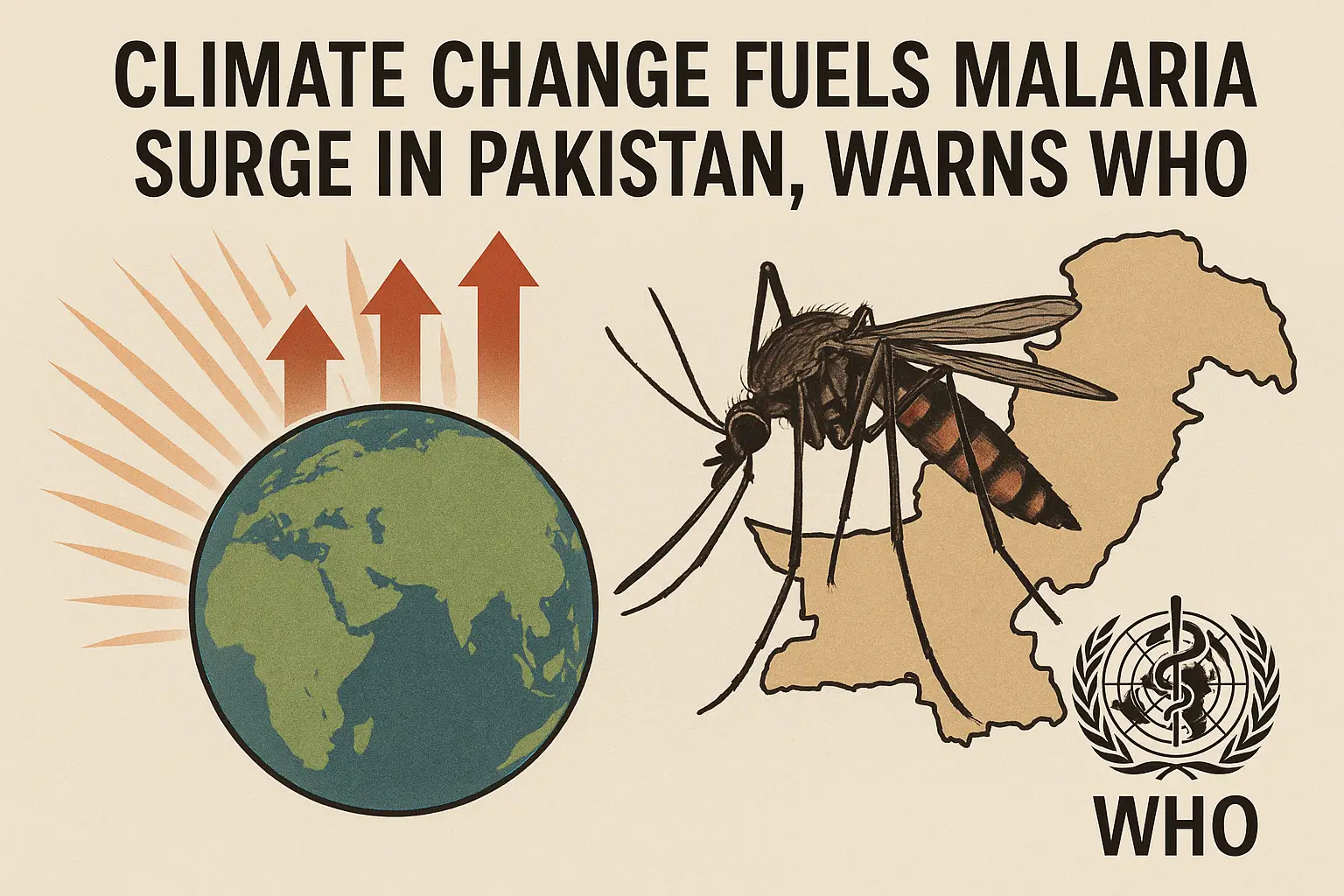
Climate Change Fuels Malaria Surge in Pakistan, Warns WHO. Pakistan is facing increasingly severe consequences of climate change, including escalating temperatures, frequent extreme weather, and intensified flooding — all of which are amplifying the nation’s environmental and public health vulnerabilities.
The World Health Organization (WHO) has raised a red flag, warning that the spread of malaria in Pakistan is being aggravated by these shifting climate patterns.
With over two million malaria cases reported each year, this troubling trend highlights the broader health implications of climate change. It’s also putting immense pressure on the already overstretched healthcare system.
The devastating floods of 2022 exemplify this crisis, having sparked an estimated 6.6 million additional malaria infections over the next two years — with 2023 alone recording a staggering 2.7 million cases.
According to Dr. Dapeng Luo, WHO’s Representative in Pakistan, while investments in malaria prevention and treatment are saving lives, the accelerating effects of climate change are undermining progress.
This situation highlights the urgent need for a holistic, internationally supported strategy that not only tackles disease control but also targets the root causes of climate change.
To truly make a difference, global and local stakeholders must prioritize funding for health infrastructure, improve access to medical treatments, and build community resilience against climate-related health threats.
Improving healthcare services in rural and underserved regions, ensuring early diagnosis, and timely treatment are crucial steps in easing the disease burden. Simultaneously, investing in climate-resilient infrastructure, such as flood control systems, can help minimize the destructive fallout of extreme weather events. Climate Change Fuels Malaria Surge in Pakistan, Warns WHO
Addressing climate change mitigation is just as critical.
Reducing carbon emissions and curbing global warming can help lessen the spread of climate-sensitive diseases like malaria. Importantly, malaria isn’t the only threat. A warmer, less predictable climate is also linked to increased cases of waterborne illnesses, heat-related conditions, and growing food insecurity.
Therefore, fighting malaria must be seen as part of a larger, integrated approach that combines robust public health initiatives with decisive climate action. These issues are deeply interconnected and must be tackled together.


